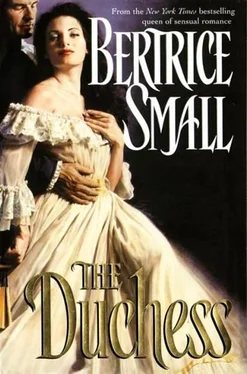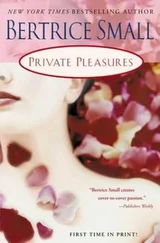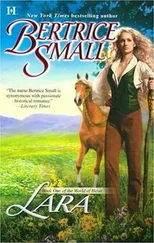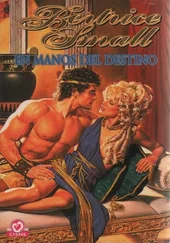It was George's situation that had brought about these second thoughts. He had felt so bad for his sibling, and then Allegra had come along, solving George's problems in a trice. Quinton Hunter had to admit to himself that while he was delighted for his brother, he was frankly irritated by Allegra's actions. It had been so easy for her, and damnit, life wasn't that easy. But mayhap it was for the daughter of the richest man in England. And there was the other fact that gnawed at his pride most of all. He had compromised his family's name by making a match based solely on his bride's financial resources. What kind of a man of honor did that? A desperate one, he admitted to himself.
Yet Allegra was a great beauty. She had perfect manners, and a kind heart. But she was also outspoken to the point of rudeness on certain occasions. While patient with her inferiors, she was totally lacking in that virtue where her betters were concerned. She had absolutely no tolerance for fools. And she was so deucedly independent, particularly where monies were concerned.
"I will," she had already informed him, "oversee all the household chits without interference, Quinton. Some servants are apt to become light-fingered when tempted. Best not to tempt them."
"The Crofts have been with this family for centuries," he had haughtily told her.
"I am not speaking of the Crofts," she returned. "I shall have to hire a full staff, Quinton. You cannot expect dear old Croft, and his good wife, to run such an establishment as we shall soon have. I shall, of course, pay the servants myself out of the allowance that Papa has given me. The monies you receive are yours to do with as you please. A wife runs the household; a husband the estate. Or so Aunt Mama had instructed me. Is she wrong then?"
He had grudgingly admitted that the new Lady Morgan was most correct in her assessment of a couple's home duties. But it had irritated him to do so, though he knew not why. And Allegra had blithely gone her way then, tightening her hold upon him and his household by virtue of her wealth. He hated the ostentation of her fortune, yet neither Allegra, nor her exquisite taste could be called flamboyant, or even pretentious. Her father's wealth had saved him and his estates, he well knew, an admission which only seemed to cause him further resentment.
But his home was coming to life as he had never known it. He had to admit to himself that he liked what he was seeing. The exterior of Hunter's Lair was unchanged. It was built in the shape of an H, which had been the fashion in the year 1500 when the first Tudor king, Henry VII reigned, and the house had been reconstructed after a devastating fire. The brick was warm and mellow where it could be viewed beneath the dark green ivy. It had high stone chimneys, and a number of slate gables and roofs. Where the slates had been damaged, or gone entirely, they had been replaced. Every one of the leaded paned windows had been repainted and washed.
His beloved hall, the only part of the original house to have survived the fire of 1498, had been left basically intact as he had requested. But Allegra had put her new band of maidservants and footmen to work cleaning and polishing the stone and paneled walls, scrubbing the stone fireplaces and the window wells enclosing the windows. He entered the hall one day to find footmen on great tall ladders washing those windows. To his amazement he realized there were stained glass designs in each of the windows that he had never even known were there. The tapestries and the silken banners in the hall were taken down and repaired, the dirt and the dust beaten out of them before they were restored to their places. When all was done, the furniture glowed. The highboard as well as the sideboards held bowls of flowers that perfumed the air of the Great Hall in a most pleasing manner.
The once narrow entry of the house with its several small and useless rooms on either side of it had become a spacious and elegant rounded foyer with staircases sweeping down on either side of the room. Six days a week the workmen swarmed about the house. There were buckets of plaster everywhere. A new dining room was being constructed, its walls to be covered in red brocade and hung with fine paintings. Chandeliers had been ordered from Waterford in Ireland, although they would not be ready until early the following year. New furniture had been commissioned from Mr. Chippendale's workshops in London. It would be in place by their wedding day.
The first floor of the house also contained the duke's library, the duchess's morning room, the duke's small office, and a drawing room. The second floor of the house was devoted to the new dining room with its pantry, a magnificent ballroom, and another small drawing room for the family's use. The tiny rabbit warren of rooms that had previously existed had been demolished. They had been of no importance. The third floor of the house held the ducal and guest bedchambers. The fourth floor was given over to the servants' quarters.
Allegra's apartments had been the first rooms finished. They were done in her favorite colors. The private salon had pale green brocaded walls above a gilded chair rail, and beneath the chair rail the wall was paneled in light wood. The Aubusson carpet had a light green background with a floral design of deeper green, gold, and rose. It lay over a wide board oak floor. The draperies were striped in pale green and gold silk brocade. The sofa was upholstered in gold brocade sprigged with a tiny cream dot. The French chairs were done in a gold and cream brocade. Upon the fireplace mantel stood a fine gilded clock which chimed not only the hour and the half hour, but the quarter hour as well. Lord Morgan had personally ordered the furniture for his daughter before they had departed the city. It was made of mahogany, and its design quite graceful and very elegant. On the delicate side tables were small china bowls of dried rose petals mixed with gillyflowers. The candelabra and candlesticks were gold gilt over sterling silver. The lamps were crystal.
The bedchamber was decorated in rose and cream. The bedstead, which was quite old, was of golden oak, and hung with rose silk brocade draperies that could be drawn all about the bed for privacy. Allegra had never seen such a large bed, but it fit comfortably into the chamber. It came from the previous century, but Allegra liked it, and would not allow it to be replaced. There was a mahogany armoire, a dressing table with its own carved mirror, a matching chest of drawers, and a small table by the bed, along with a rose and cream-colored tapestried chair by the fireplace. On the wide board oak floors was another Aubusson carpet of deep rose decorated with a border of cream and lighter pink roses with deep green leaves. The windows were hung with cream and rose sprigged silk brocade draperies. There was also a Chippendale chest with a fine gilt mirror hung over it on the wall that led to the dressing room. On the other side of the dressing room was a pretty windowed chamber for Honor that was comfortably furnished with a bedstead, a drawered coffer, a night table, and a chair. The duke's apartments, now under construction, were next to Allegra's with a connecting door between their bedchambers.
No, he could not complain, even to himself, about the improvements that were being made to the house, Quinton Hunter thought. His bride-to-be's never-ending fortune was a godsend in that respect. The duke had always loved his home, but it was fast becoming the showplace he had always known it could be. That, and his deep sense of honor were what kept him from crying off his match to Miss Allegra Morgan. It was becoming quite obvious to him that once he had sired a proper number of children with her that they would, like so many couples of their day, have to lead separate lives.
Читать дальше












